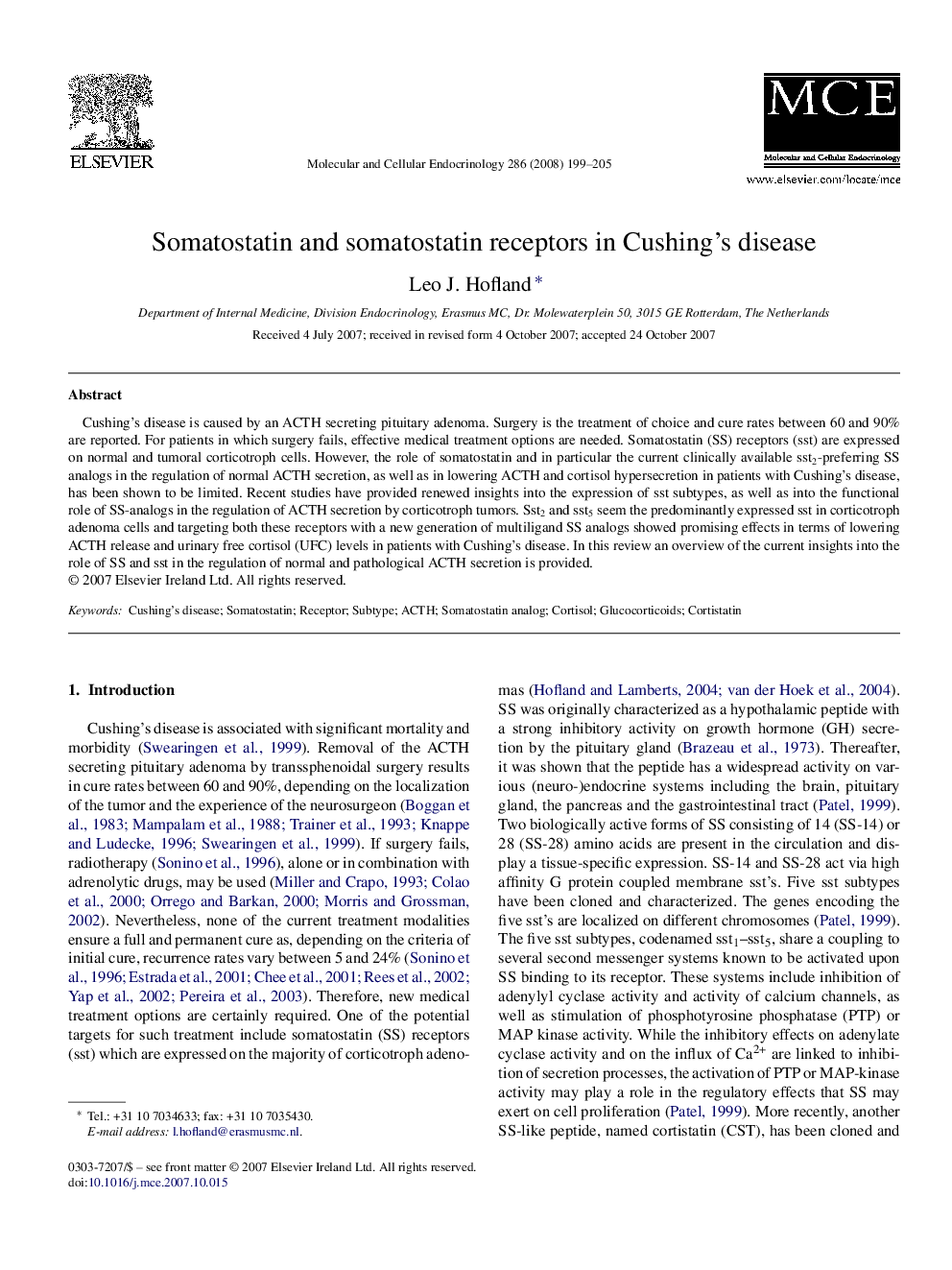| Article ID | Journal | Published Year | Pages | File Type |
|---|---|---|---|---|
| 2197665 | Molecular and Cellular Endocrinology | 2008 | 7 Pages |
Cushing's disease is caused by an ACTH secreting pituitary adenoma. Surgery is the treatment of choice and cure rates between 60 and 90% are reported. For patients in which surgery fails, effective medical treatment options are needed. Somatostatin (SS) receptors (sst) are expressed on normal and tumoral corticotroph cells. However, the role of somatostatin and in particular the current clinically available sst2-preferring SS analogs in the regulation of normal ACTH secretion, as well as in lowering ACTH and cortisol hypersecretion in patients with Cushing's disease, has been shown to be limited. Recent studies have provided renewed insights into the expression of sst subtypes, as well as into the functional role of SS-analogs in the regulation of ACTH secretion by corticotroph tumors. Sst2 and sst5 seem the predominantly expressed sst in corticotroph adenoma cells and targeting both these receptors with a new generation of multiligand SS analogs showed promising effects in terms of lowering ACTH release and urinary free cortisol (UFC) levels in patients with Cushing's disease. In this review an overview of the current insights into the role of SS and sst in the regulation of normal and pathological ACTH secretion is provided.
